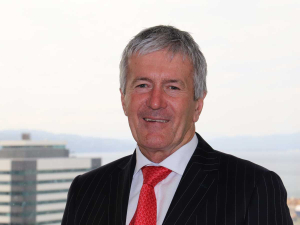Damien O’Connor: NZ united on global trade
When it comes to international trade, politicians from all sides of the aisle are united, says Labour's trade spokesman Damien O'Connor.
 Agriculture Minister Damien O’Connor concedes that there is frustration in the farming sector with the Government.
Agriculture Minister Damien O’Connor concedes that there is frustration in the farming sector with the Government.
Agriculture Minister Damien O’Connor reckons his Government is not to blame for on-farm pressures.
In an interview with Country TV in its focus on the election, O’Connor claimed NZ farmers were facing huge inflationary pressures due to the Russo-Ukrainian war.
“The Ukraine war has put huge pressure on fuel costs and that has flowed right through,” said O’Connor. “We’ve seen that and many other countries are fighting inflation, just as we are as well.”
O’Connor conceded that there is frustration in the farming sector but said the Government was a “good kicking horse”.
“You can just flog us, but actually, we’re not to blame for many of the pressures on-farm,” he says. “I think farmers need to be honest about that because, if they think a change of government’s going to relieve all that pressure, they’re dreaming.”
O’Connor was adamant that there are underlying structural issues in the sector that “need to be addressed and rectified”.
“It won’t happen overnight. We’ve got to take a long-term approach to this because it’s really important that future generations in farming can firstly see the incentive to get into it and then stay in it.”
The long-time Labour MP also claimed that some of the rhetoric from different organisations and political parties was not helping the situation.
“It’s a lot of rhetoric and it’s been run up by organisations like Fed Farmers under Andrew Hoggard, but some of the messages that they were sending to farmers were quite inaccurate.”
O’Connor pointed to the saga surrounding Intensive Winter Grazing (IWG) practices as an example.
He says when changes to winter grazing regulations were made, Federated Farmers claimed that as many as 10,000 consents would be required.
“We’ve had 300 consents issued. But saying that there was a need for 10,000 did cause a panic across the farming sector. That was unnecessary and so there’s a lot of rhetoric out there which is causing alarm among farmers.”
However, when O’Connor made the same claim at the recent Rural Issues debate at Mystery Creek, former Feds president and ACT candidate Andrew Hoggard said it was probably because most farmers “couldn’t be arsed applying for the consents” and just went ahead with their normal winter grazing practices.
Meanwhile, O’Connor’s ‘300 consents’ figure did not include the number of farms which were issued permitted activity status by regional councils – such as Environment Southland – because they could not meet the slope criteria but had met all other requirements of the consent process.
South Island dairy production is up on last year despite an unusually wet, dull and stormy summer, says DairyNZ lower South Island regional manager Jared Stockman.
Coming in at a year-end total at 3088 units, a rise of around 10% over the 2806 total for 2024, the signs are that the New Zealand farm machinery industry is turning the corner after a difficult couple of years.
New Zealand's animal health industry has a new tool addressing a long-standing sustainability issue.
The Government has announced that ACC will be a sponsor of this year's FMG Young Farmer of the Year competition.
As veterinary student numbers grow to help address New Zealand's national workforce shortge, Massey University's School of Veterinary Science is inviting more veterinary practices to partner in training the next generation of vets.
South Island dairy farmers will soon be able to supply organic milk to Fonterra.

OPINION: Meanwhile, red blooded Northland politician Matua Shane Jones has provided one of the most telling quotes of the year…
OPINION: This old mutt has been around for a few years now and it seems these ‘once in 100-year’ weather…